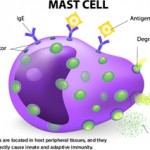The microbiome comprises diverse microbial flora, including bacteria, viruses and fungi, that live on mucosal surfaces, predominantly the skin and digestive tract. Microbes evolved billions of years prior to the development of modern Homo sapiens 200,000 years ago; we have always existed with their ubiquitous presence. Despite this, the first microbe was not visualized until…








